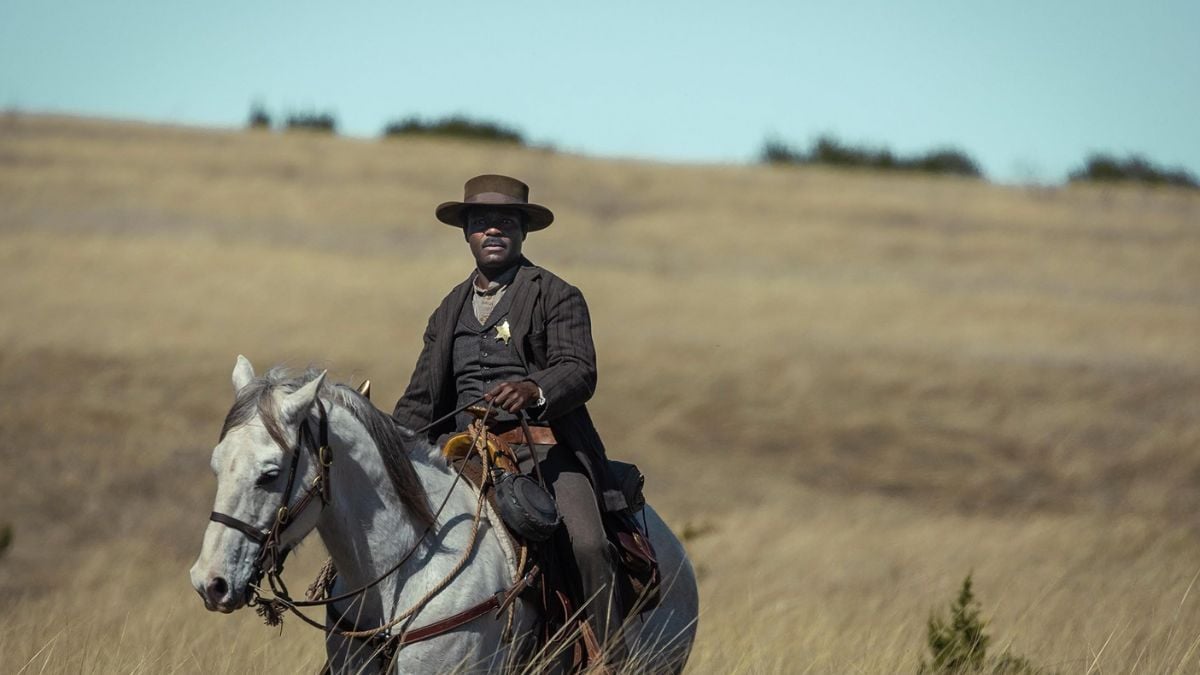David Oyelowo is a first-of-a-king American lawman in Taylor Shierdan‘s upcoming historical anthology, Lawmen: Bass Reeves, and as the titular character, he’s got quite an important story to tell.
Sheridan’s Bass Reeves story initially had ties to a Yellowstone prequel, but is now billed as part of a forthcoming anthology focusing on essential lawmen in the history of our country, seeing how they shaped us, how they played a part in creating laws, and what impact they had on life then and now.
The official trailer for Lawmen: Bass Reeves went live yesterday, and two things stood out immediately: Reeves being asked if he could handle the weight of the badge, and his response when asked if he was a lawman or an outlaw. Reeves existed in an area that may look a little grey to those on the outside and, at times, to himself.
Reeves is said to have inspired The Lone Ranger, and with good reason. So just who was Reeves, and why is his story so integral to our history as a nation? As usual, we’ve got you covered.
Who was Bass Reeves?
Oyelowo calls the role of Bass Reeves a dream come true, and it’s not hard to understand why. Bass Reeves was born in 1838, enslaved by William Steele Reeves, an Arkansas state legislator. His first name, Bass, came from his grandfather, while his surname was adjusted to be the same as the legislator, as was common practice then.
Reeves was many things to many people throughout his life: a son, brother, friend, husband, father, freedman, and landowner. Most prominently, he became the first Black U.S. Deputy Marshal west of the Mississippi. It wasn’t just an achievement or an honor; it was groundbreaking.
The Oklahoma Historical Society shares more information about Reeves, noting that his escape from slavery as a young man is part of what set him on the track to becoming Deputy Marshal, and helped him gain the skillset to stand tall against some of the most wanted individuals of that time — and not just to stand against them, but to capture and bring them to justice.
During his escape, Reeves “became acquainted with the Cherokee, Creek, and Seminole” and is even believed to have served alongside the “Union Indian Home Guard Regiment during the Civil War.”
Reeves was highly regarded as well-mannered with a phenomenal sense of humor, intelligent and prepared for anything, and he was loyal to a fault, so much so that he is also known for turning in his own son, Bennie, who had a warrant for his arrest on the charge of murder.
Reeves was said to have brought in thousands of lawbreakers, as reported by the Chickasaw Enterprise in 1901:
“Bass Reeves had arrested more than three thousand men and women for violating federal laws in the territory.”
Reeves was a deputy for 32 years until his retirement in 1907, but he didn’t stop there. He then worked as a police officer in Muskogee, Oklahoma, for two years, and it’s said crime in his “beat” was non-existent when he was an officer in the area.
It goes without saying that you didn’t mess with Reeves; his name and history alone were intimidating enough to ward off any would-be-criminals with even a faint thought of crossing his path. His life was best described as monumental; he was loyal and dedicated, and Reeves made an impact in each and every moment he lived. Reeves passed away at 71 on Jan. 12, 1910, and in his passing was the loss of a legend, but his memory lives on.
When Reeves passed away, the Muskogee Phoenix penned a tribute to the lawman who changed the name of the game in more ways than anyone knew at the time, becoming a legend in his own right.
“In the history of the early days of Eastern Oklahoma, the name of Bass Reeves has a place in the front rank among those who cleansed out the old Indian Territory of outlaws and desperadoes. No story of the conflict of government officers with those outlaws, which ended only a few years ago with the rapid filling up of the territory with people, can be complete without mention of the Negro who died yesterday. During that time, he was sent to arrest some of the most desperate characters that ever infested Indian Territory and endangered life and peace in its borders. And he got his man as often as any of the deputies.”
You can soon learn more about Reeves when Lawmen: Bass Reeves begins streaming on Nov. 5, and there are many opportunities to brush up on his incredible history online and in books until then.










Published: Sep 8, 2023 05:32 pm